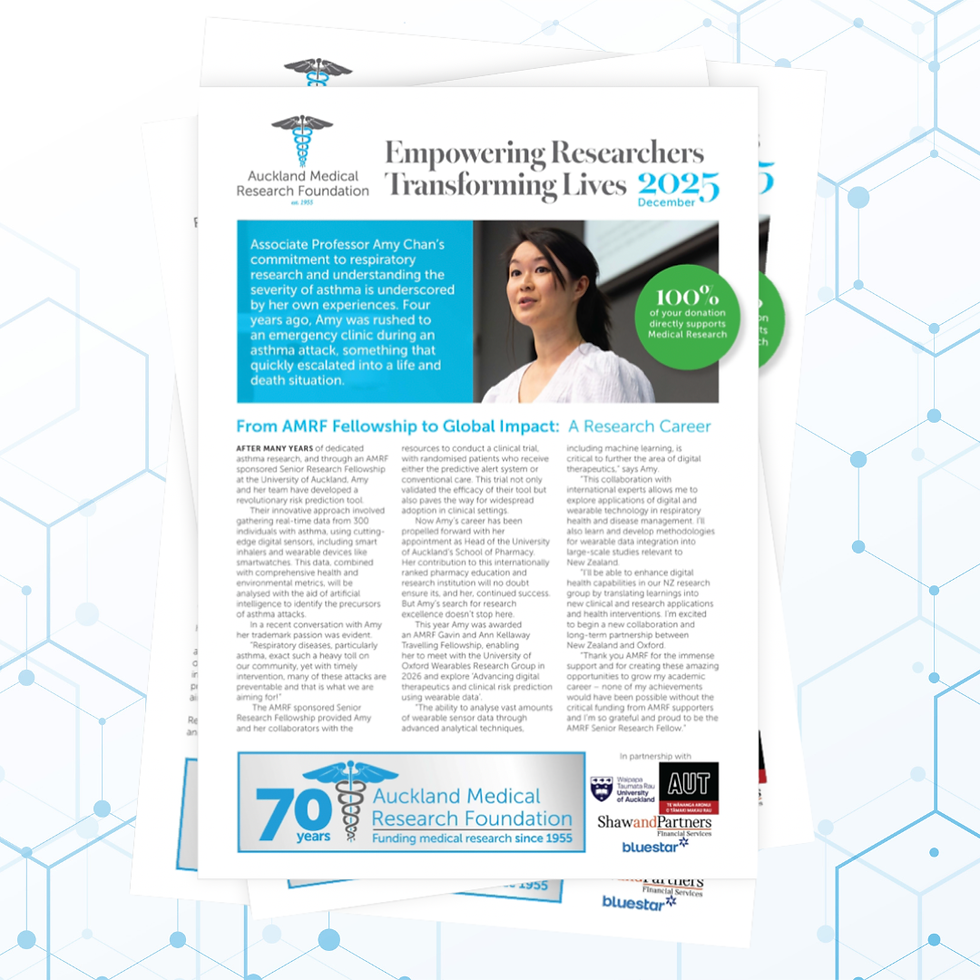Melanoma Awareness Week: Uniting biology and engineering for better treatment of melanoma patients
- AMRF
- Oct 19, 2020
- 2 min read
Updated: Dec 2, 2024
A new research study will focus on the analysis of a newly discovered signal in the blood that could be used early in cancer patients' treatment with immunotherapies, such as Keytruda, to detect whether the treatment is working for them.
"As we know for all cancer treatments, there can be significant side effects from immunotherapy and so early detection helps avoid those and can allow a doctor to quickly respond, revise and select a different treatment," says Dr Cherie Blenkiron, co-lead investigator of the work based at the University of Auckland's Departments of Molecular Medicine and Pathology and Obstetrics and Gynaecology with Dr Colin Hisey. "Our project will analyse the usefulness of this new blood marker in New Zealand melanoma patients for the first time, and we will also develop a tool, a microfluidic device, that will offer quick and inexpensive testing."
Once developed, these devices can be simply altered to detect a range of blood markers for use as ‘point-of-care’ tests to guide clinical decisions across a range of diseases, not only for people diagnosed with cancers.

We believe that these tests, performed on a tiny blood sample, could become a simple and accessible aid to benefit all cancer patients and particularly overcome challenges for rural New Zealand patients.
"As a Biologist and a Bioengineer our different viewpoints are very complementary and will help to tackle clinical problems through finding the right biological marker and at the same time to develop ways of testing that can be used almost immediately by our hospital laboratories," says Dr Hisey.
AMRF donors are committed to supporting early career researchers. Dr. Blenkiron is in the process of establishing her new cancer biology laboratory, focusing on the analysis of extracellular vesicles, while Dr Hisey is a young investigator forging his research path into developing better tools and methods for understanding of how cancer cells talk to one another to enable their survival.
This AMRF funding therefore provides significant support for both researchers at pivotal points in their research careers. It supports development of their ‘liquid biopsy’ research programme and provides educational opportunities for students in biomedical and bioengineering sciences.
On a personal level, the opportunity to spend our days developing new tools that could one day be used to improve the lives of people undergoing cancer treatment is humbling.
Read more about Dr Blenkiron's AMRF funded skin cancer research here.



